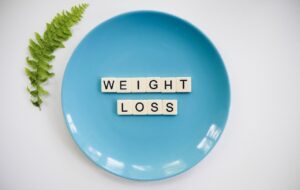
Wholesome Living - A Journey to Wellness
Welcome to the enlightening journey of our five-article series, “Wholesome Living: A Journey to Wellness.” In this series, we explore diverse aspects of health and vitality, offering insights and strategies to help you lead a more balanced and fulfilling life.
In this first article, “Middle-Age Women Wellness and Weight Loss Plan,” we delve into the unique challenges and opportunities that come with this life phase. Discover effective ways to nourish your body, boost your metabolism, and achieve a healthier weight while nurturing overall well-being.
As we embark on this series, remember that each article is a stepping stone towards comprehensive wellness, enabling you to make informed choices that harmonize mind, body, and soul.
Average Caloric Maintenance Level: For middle-aged women with a sedentary to moderately active lifestyle, the average caloric maintenance level is approximately 1,800 to 2,200 calories per day. To create a caloric deficit for weight loss, we’ll target a daily intake of around 1,500 to 1,800 calorie
Meal Plan
Breakfast (Around 7:30 AM – 8:00 AM | 350-400 calories):
- Option 1: Vegetable omelette (2 egg whites and 1 whole egg) with spinach, tomatoes, and bell peppers (250-300 calories).
- Option 2: Mixed fruit and yogurt parfait with 1 serving of Greek yogurt, assorted fruits, and a sprinkle of nuts and seeds (350-400 calories).
Mid-Morning Snack (Around 10:00 AM | 150 calories):
- Handful of mixed nuts (almonds, walnuts) and a small apple (150 calories).
Lunch (Around 12:30 PM – 1:00 PM | 400-450 calories):
- Option 1: Roti (2 small whole wheat flatbreads) with dal (lentil curry), a portion of mixed vegetables, and a side of plain yogurt (400-450 calories).
- Option 2: Brown rice (1/2 cup cooked) with a vegetable curry (low oil) and a small serving of lean chicken or paneer (cottage cheese) (400-450 calories).
Afternoon Snack (Around 3:30 PM | 150 calories):
- Carrot and cucumber sticks with hummus or a small serving of low-fat cottage cheese (150 calories).
Pre-Workout Snack (Around 5:00 PM | 100 calories):
- A small banana or a handful of berries (100 calories).
Post-Workout Snack (Around 6:30 PM | 150 calories):
- Protein shake with almond milk and a scoop of protein powder (150 calories).
Dinner (Around 8:00 PM | 400-450 calories):
- Option 1: Grilled fish or tofu (3-4 oz) with 1/2 cup of cooked quinoa and steamed vegetables (400-450 calories).
- Option 2: Roti (2 small whole wheat flatbreads) with a mixed vegetable stir-fry (minimal oil) and a side of lentil soup (400-450 calories).
Before Bed Snack (Around 9:30 PM | 100-150 calories):
- A small bowl of low-fat yogurt or a glass of warm turmeric milk (without added sugar) (100-150 calories).
Total Daily Calories: The total daily caloric intake of this plan falls within the range of approximately 1,500 to 1,800 calories.
Tips and Insights:
- Pay attention to portion sizes to achieve your targeted caloric intake.
- Prioritize nutrient-dense foods for satiety and overall health.
- Aim to include a variety of colorful fruits and vegetables for optimal nutrition.
- Stay hydrated by drinking water throughout the day.
- Incorporate moderate-intensity exercises like walking, yoga, or Pilates for overall well-being.
Conclusion
As we wrap up our exploration of middle-age wellness and weight loss strategies, remember that your journey to well-being is a comprehensive one. By incorporating the insights from this article, you’re setting the stage for a healthier life that goes beyond just numbers on a scale. Embrace these strategies and meal plans as your allies on this path to vitality.
In our upcoming article, we’ll plunge into the realm of the “Plant-Based Diet Plan for a Healthy Day.” Unlock the potential of plant-based nutrition, uncover tantalizing recipes, and embrace a lifestyle that’s not only kind to you but also to the environment.
Please note that the provided meal plan samples are approximate in terms of calories, and individual needs may vary. Adjust portion sizes and food choices to meet your specific requirements and preferences while staying within the recommended caloric range. If you have any underlying health conditions or specific dietary needs, consider consulting a healthcare professional or registered dietitian before making significant changes to your diet.
© 2023 Tanushree Jain
